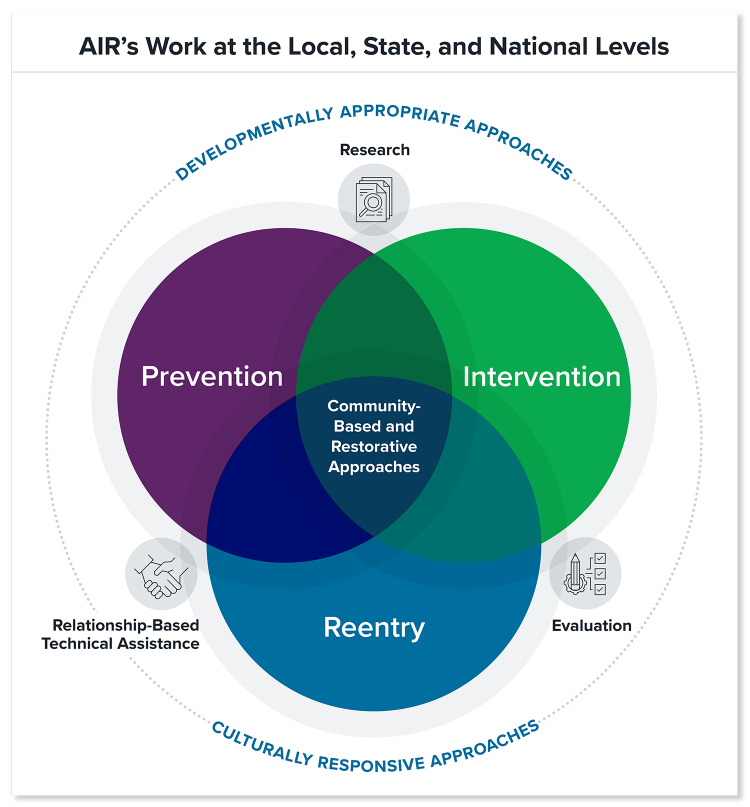AIR, through our work in justice, believes that evidence-based and practice-informed solutions can provide access and equity to opportunities for all people to thrive. AIR’s work in justice systems is committed to generating and using rigorous evidence to engender transformative change that dismantles structural factors that lead to racial and other disparities.
Our work spans the justice continuum—from prevention to intervention and reentry—and embeds community-based, restorative, developmentally appropriate, and culturally responsive approaches. We aim to address root causes of harm and trauma and promote equitable access to resources and opportunities that engender safety, dignity, and thriving.
Our Work
AIR’s justice experts bring decades of interdisciplinary experience in the social and behavioral sciences both conducting rigorous mixed-methods and participatory research and evaluation, while promoting evidence-based solutions. Through our relationship-driven technical assistance, we support partners to use evidence for capacity building to transform policies and systems. We partner with federal, state, and local government agencies, community-based nonprofit organizations, and foundations.















